Toyota, a trailblazer in hydrogen mobility, has been at the forefront of this technology, embracing a future beyond conventional fuels. Their journey, marked by innovation and adaptability, reflects a commitment to diverse mobility solutions.
André Schmidt has been with Toyota for almost 20 years. Since January 2021, the manager has had overall responsibility as President of Toyota Deutschland GmbH. His start has been a success: Toyota grew faster than the overall market in 2022.
Schmidt has held several positions for Toyota in different countries. In 2018, he joined Toyota Motor North America to lead Global Olympic/Paralympics Marketing. During his assignment in the US, he also held leadership roles in online retailing, Tier 2 marketing optimization and mobility strategies. Prior to that, Schmidt served as Director Marketing & Light Commercial Vehicle Business Unit at Toyota Motor Europe since 2015, where he pioneered a new pan-EU agency model.
In 2012, Schmidt was appointed President and CEO of Toyota Sweden. In the four years prior to that, he held the role of Marketing Director of Toyota Germany. In 2005, he joined Toyota Motor Europe as General Manager Pricing & Revenue Management.
His previous experience in the automotive industry includes four years at Mitsubishi Motors Europe and positions as a strategy consultant in transportation/automotive and automotive/mobility research for the GfK Group.
The Multi-Pathway Approach: A Diverse Portfolio for Diverse Challenges
Toyota's strategy hinges on a multi-pathway approach. Recognizing the diversity in clean energy and mobility needs, Toyota has integrated hydrogen fuel cell technologies into its portfolio. This approach is not isolated, but is part of a broader strategy encompassing various powertrains and mobility solutions. The launch of Mirai, the first mass-produced fuel cell vehicle, and the subsequent Mirai Two, exemplifies Toyota's commitment to this technology. With over 100 hydrogen fuel stations in Germany, Toyota is making strides in making hydrogen mobility practical and accessible.
Global Reach and Market Success
Toyota's success with the Mirai, particularly in markets like the United States, underscores the importance of supportive infrastructure and national policies. The company's focus on markets with advanced hydrogen infrastructure, such as California in the U.S., Europe, China, and Japan, has been pivotal. Their R&D efforts in Brussels and collaborations with various companies highlight Toyota's commitment to expanding the hydrogen business globally.
Addressing Infrastructure Challenges
Toyota actively engages with governments and local authorities to build hydrogen infrastructure. They create 'lighthouse projects' to demonstrate the viability of operating within a hydrogen system. Partnerships with companies like GP Joule in Germany showcase the potential of a green hydrogen cycle, emphasizing the interconnectedness of the mobility and energy sectors.
Commercial Applications and Retrofitting Initiatives
Toyota's hydrogen technology extends beyond passenger vehicles to buses, heavy trucks, and even non-automotive applications like diggers and caterpillars. They are also pioneering in retrofitting existing diesel trucks and buses with hydrogen fuel cells, a strategy that could significantly impact the decarbonization of existing fleets.
Collaborative Efforts and R&D Innovations
Collaboration is key to Toyota's strategy. Recognizing that no single company can tackle the challenges alone, Toyota partners with various industry players to drive technological advancements and scale up solutions. Their ongoing R&D focuses on reducing the use of precious metals in fuel cells, improving efficiency, and cutting costs to make hydrogen technology more accessible and sustainable.
The Future of Hydrogen Mobility
Toyota envisions hydrogen technology not as a niche but as a key player in mass mobility. While they continue to advance in battery electric vehicles, hydrogen cars offer unique advantages, especially for long-distance travel and in areas with less resilient electric grids. The introduction of models like the Crown Hydrogen in Japan is a testament to Toyota's belief in hydrogen's broad applicability.
In conclusion, Toyota's journey in hydrogen mobility is marked by innovation, adaptability, and a commitment to a diverse, sustainable future. Their multi-pathway approach, global market strategies, infrastructure development efforts, and collaborative R&D initiatives position them as a leader in this evolving landscape, driving towards a vision of mobility for all.
In case you missed it:
Japan's Hydrogen Strategy - A Forward-Thinking Approach in the Green Energy Race
Recognizing the limitations of fossil fuels and the urgency of climate change, Japan has strategically positioned itself as a global leader in the hydrogen economy. The country's hydrogen strategy is multifaceted, focusing on developing efficient technologies for hydrogen production, storage, transportation, and utilization. This holistic approach aims …
Note: We are going to have a short break until next year. Thank you so much for your support this year! We are coming back after the CES 2024 with more news, articles and interviews with leading executives from the hydrogen business.

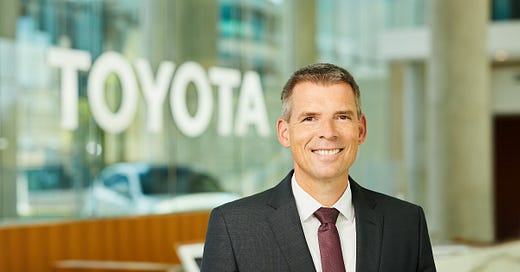



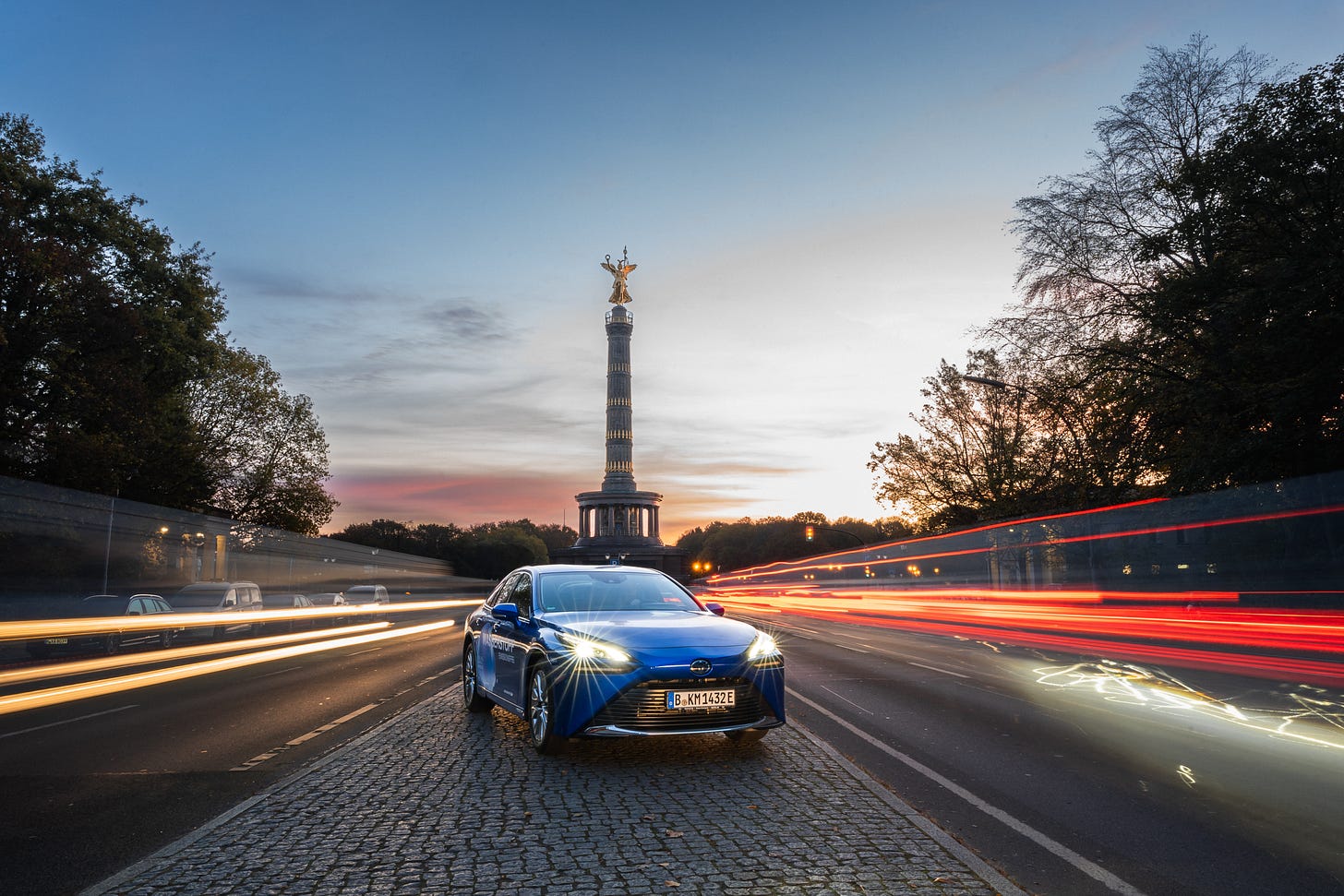



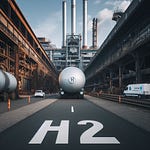
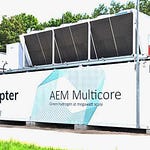

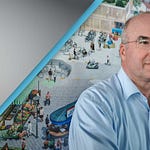


Share this post